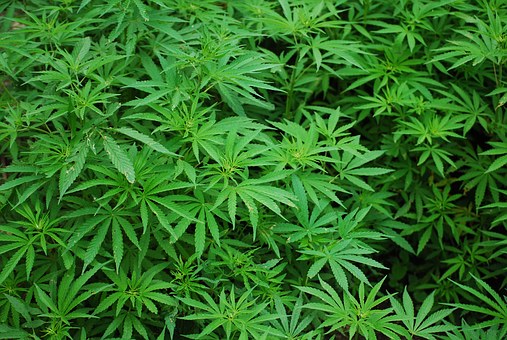After long regulatory delays, Zimbabwe has now begun cultivation of hemp and cannabis, with high hopes to add a new export into its pot of traditional cash crops.
In 2018, Zimbabwe announced it would allow the cultivation of cannabis for medicinal purposes, and further amendments to the law this September legalised the growing of industrial hemp, which is used in the manufacture of fibres.
On Friday, overcoming bureaucracy and the suspicion that has long-delayed investment, the Zimbabwe Industrial Hemp Trust (ZIHT) sowed six varieties of industrial cannabis, the country’s first authorised hemp crop. Industrial hemp is a variety of cannabis that is grown for industrial uses in textiles, paper, rope and edible seeds.
The notion that hemp is “mbanje”, or marijuana, has, however, caused some suspicion and delay. In reality, hemp, unlike marijuana, is not a drug and does not make one “high”. Unlike marijuana, hemp contains a low count of psychoactive substance THC.
ZIHT founder, dentist Zorodzai Maroveke, says she discovered the opportunity when she bought a dress made from hemp fabric while studying in China. She has lobbied for years to have the production of cannabis and industrial hemp legalised, which meant having to convince government officials to overcome their own prejudices.
Hazy regulation
Johannes Swan, co-founder of lobby group the Roots Movement, says they still have to prove to the government that hemp is not a narcotic.
“As soon as we can prove that to them then we can take this to a larger scale and go commercial. We hope to be producing the best quality hemp fibre in the world,” Swan says.
However, the industry has won part of the battle against negative perception, with Agriculture Minister Perence Shiri attending Friday’s first plant.
“This project is the first of its kind in the history of our country,” Shiri said. “This pilot project will provide essential knowledge or information for the successful production of this crop. The benefits that will be derived from the production of industrial hemp are enormous and varied.”
Hazy on how to regulate the crop, and confused by differing submissions by applicants over just how much the crops would earn for the country, government took months to develop a licencing regime.
Growers of hemp and cannabis – two different crops – get licences running for up to five years, and have to produce their crops under strict monitoring.
To convince the sceptics in government, growers have had to show them the numbers. According to consultancy firm, Prohibition Partners, Africa’s legal cannabis industry could earn up to US$7,1 billion per year by 2023 “if a number of the continent’s major markets open up and mirror the trend of legalisation” seen in markets such as the USA, Canada and Europe.
Since legalisation of cannabis growing last year, interest has been strong, with over 350 applications received within weeks of the announcement.
“We will find the funding for it. There are many interested parties already,” Swan says.
The new hemp project in Harare, on a 10 hectare patch on the fields of the Harare Central Prison, is partly funded by NSK Holdings, an international company, and Symtomax, a Portuguese firm that will provide technical farming support.
Joint venture
In Marondera, British firm Eco Equity has begun work on its US$6.3 million medicinal cannabis project. The company plans to complete a greenhouse by the first quarter of 2020, start cultivation in the second quarter, and begin exports of the product by the third quarter.
Eco Equity has partnered with Dutch greenhouse manufacturer DutchGreenhouses and Australian cannabis company Delta Tetra to build the facility. The company says it has been granted a long-term lease on 2 000 hectares of land to grow and process cannabis.
Jon-Paul Doran, Eco Equity CEO, said: “After months of planning, we have moved on to the next exciting phase of our project and we are already seeing the first pictures of the work undertaken. We believe we have the perfect site in terms of both location and climate to cultivate the optimum quality cannabis, which we can use for medicinal purposes. We have employed experts from around the globe to ensure our facilities are cutting edge as we look to provide an alternative natural cure.”
According to Eco Equity, the project has an expenditure requirement of £5 million (US$6,3 million), which will include total capital cost of £3 million and £2m as working capital.
-newZWire










